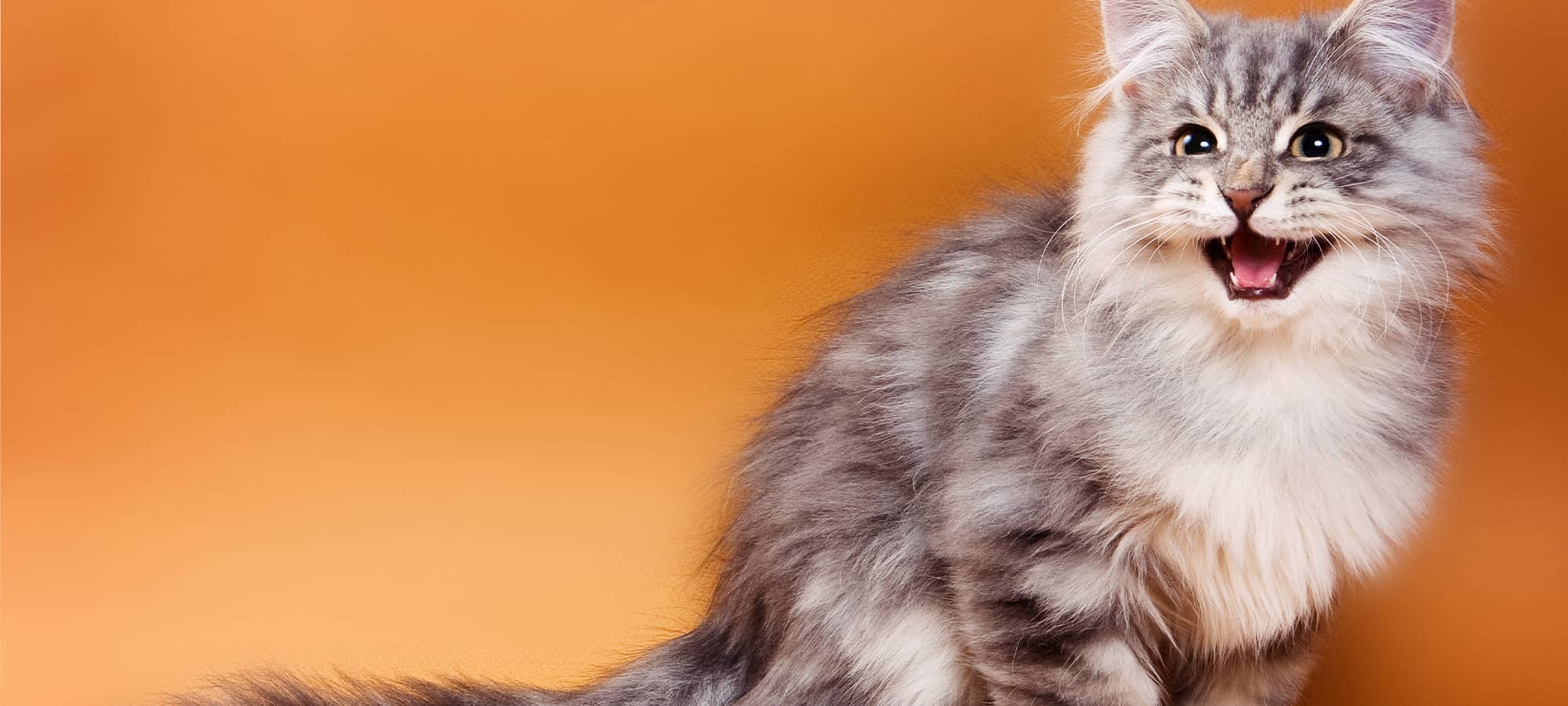Everybody needs a good night’s sleep, and nothing is worse than having that ruined by your cat meowing. There can be many causes of this night vocalisation, so here are some suggestions to help you get some peace and quiet.
Tips for Stopping Your Meowing Cat
Play with them during the day
Cats are crepuscular, meaning they are naturally most active during dawn and dusk. House-bound cats typically don’t receive much stimulation compared to their wild counterparts. Instead of spending hours and hours tracking and hunting, they spend hours and hours on the couch. This can lead to a dysregulated day-night cycle, which we call their circadian rhythm. Usually one of the first treatments we look at is to increase stimulation during the day in an attempt to reset this circadian rhythm. This can involve a combination of playing with toys (laser pointers are very useful!), supplying catnip, and discouraging rest during the day.
Ensure they have food, water, and fresh litter
We also need to ensure that they’re not vocalising to tell us something. Having plenty of food and water on hand can help. In fact, cats are just like us and can go into a ‘food coma’ after a large meal. We can use this to our advantage by offering a large feed prior to bedtime and ensuring food availability through the night. Cats are also naturally fastidious, and prefer fresh clean litter in their tray. Keeping their litter clean and fresh can reduce the chance of them reminding you at night.
Desex them!
When cats are on heat or it is mating season, they are in a highly stimulated state and will often find it difficult to rest. This period typically lasts around 10 days for female cats. Desexing your pet will stop vocalisation related to sex hormones.
Senility
Many owners notice brain ageing in their pets. Studies have shown that pets can experience the same age-related changes in their central nervous system as people with dementia. This can result in forgetfulness, anxiety, and disturbed circadian rhythm. Some cats seem to ‘forget’ they have been fed. Some get very distressed with dark environments, and others experience radical personality changes.
Provided we have ruled out concurrent disease, many older cats benefit from having night lights to reduce anxiety and having freely available food, water and litter in many areas. Some patients are treated with anti-anxiety drug therapy to help them cope with the stress of cognitive dysfunction. It is also important to keep to a routine as much as possible, and avoid moving furniture. Occasionally by offering puzzle toys, increasing the amount of omega-3 fatty acids in their diet, and increasing the amount of antioxidants in their diet, we can improve outcomes. However, there are currently no widely accepted medical treatments for this problem in cats.
Arthritis
Just like ourselves, the older our cats get, the more likely they are to develop arthritis. This can eventually manifest as a dull, aching chronic pain in the spine or other joints. Having chronic pain interferes with getting restful, recharging sleep and can result in your cat complaining at night. There are many medications available to help with arthritis. Also, many vets will employ a mulit-modal approach which involves using a few synergistic medications to provide safe and effective pain relief.
Hyperthyroidism
Older cats can develop a variety of metabolic problems. But, one in particular that can be responsible for night vocalisation is hyperthyroidism. This occurs as a result of a small tumor developing on the thyroid. This then secretes excessive levels of thyroid hormone. Excessive circulating thyroid hormone results in what we call a hypermetabolic state, where their metabolism is significantly increased – think of yourself after three espressos! The resultant increase in heart rate, blood pressure and metabolic rate makes getting a sustained restful sleep difficult for them. We tend to diagnose this problem based on a blood test. From there, we can offer a variety of therapies including topical creams, referral to a major city for nuclear therapy (this is where we use radioactive iodine to destroy the thyroid tumor), tablets, and even iodine-restricted prescription diets.
Avoid positive reinforcement
Many cats don’t seem to understand that we have work in the morning, and that we can’t afford to lose sleep in order to pat them. Offering them a few pats to ‘quiet them down’ will only serve to reinforce the meowing longer term.
Environmental control
Some clients have set up auto-sprayers outside their door, which detect cat movement at night and spray a puff of harmless air if the cat gets too close to the door. Others have succeeded by locking their pets away where they can’t be heard at night. When all else has failed these treatments can help. However, in principle we prefer to treat the primary problem rather than offer ‘band-aid’ solutions.
As you can see, cats can meow at night for many reasons. So if you’re having a problem with your cat meowing late into the night, consider a visit to the vet to investigate the above problems.
Cairns Veterinary Clinic is proud to have been caring for Cairns furry family members since 1966. With 2 convenient locations, Pease Street and Norman Street, Gordonvale, our clinics are staffed by a great team of hard working and dedicated veterinary professionals who treat your pets as if they are their own. With a vet available 24/7 365 days per year, we are always here when you need us. Contact our friendly staff for all your pet’s healthcare needs.
Read more from Cairns Vet Clinic HERE.





